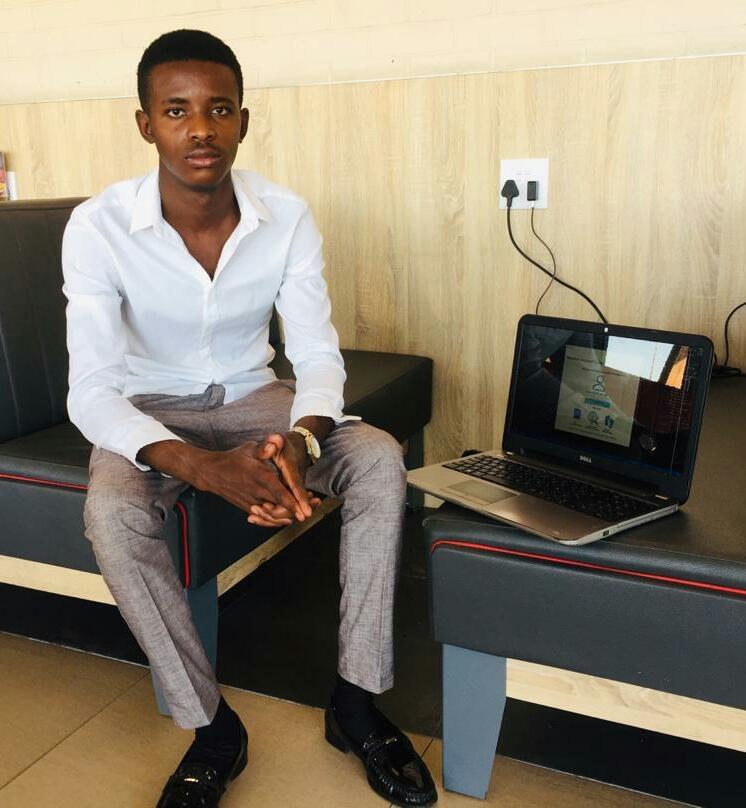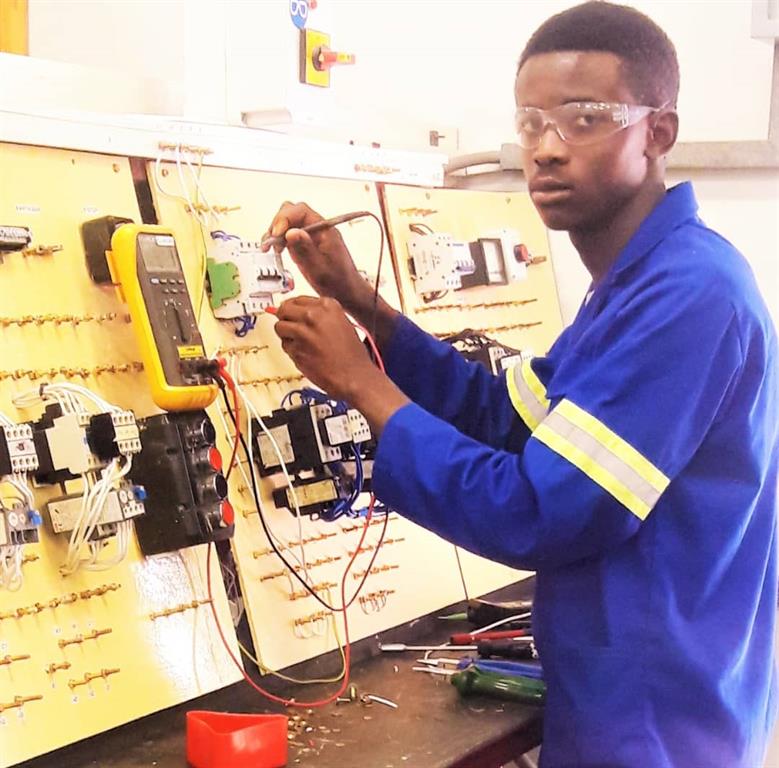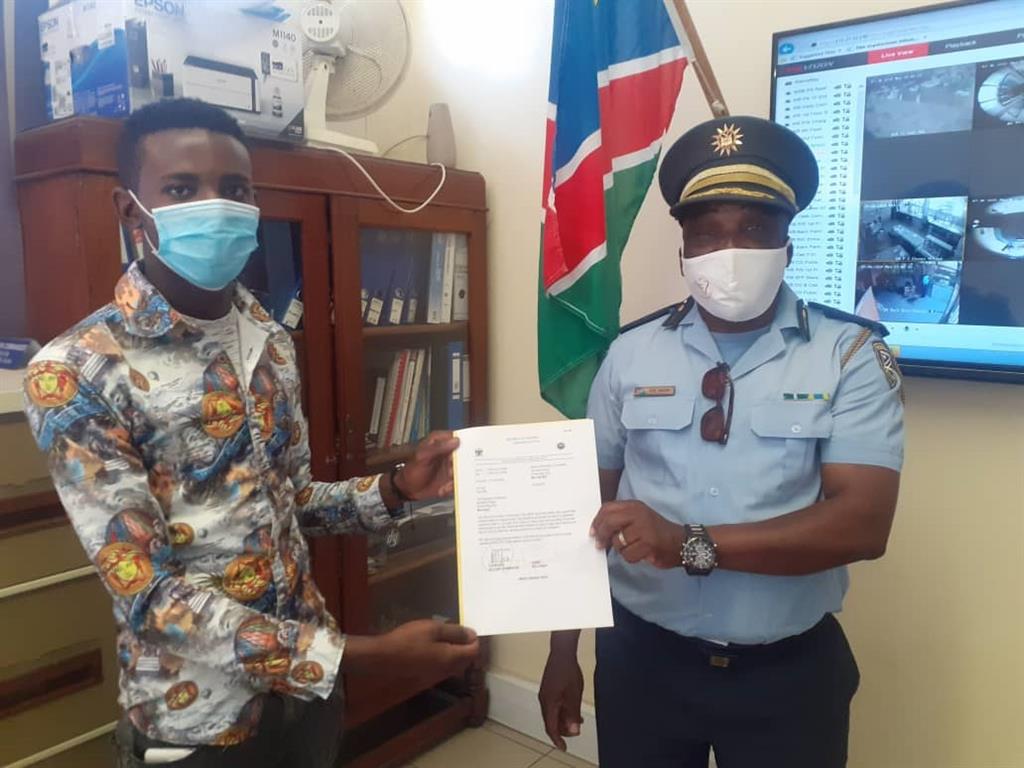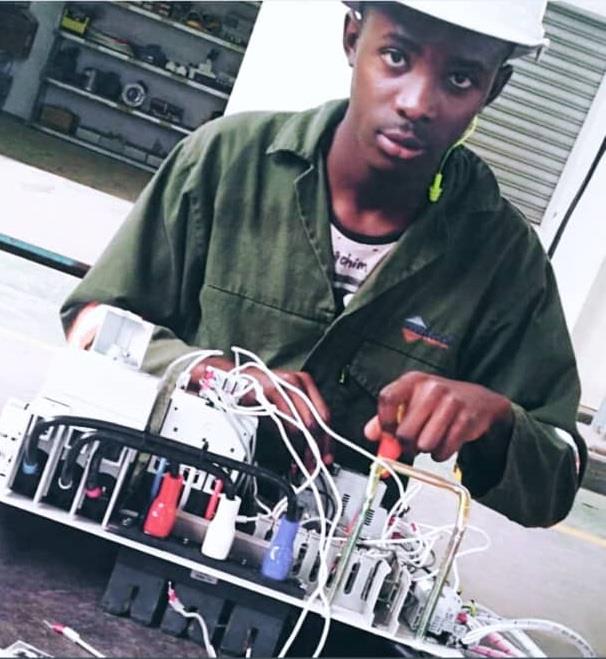Tossing papers, tapping buttons
The 23-year-old has raised the bar for youth participation in the fight against the coronavirus pandemic by developing a contact tracing system.
Justicia Shipena
WINDHOEK
Having started his coding journey in grade nine at De Duine Secondary School in Walvis Bay, Joachim Shilongo recently developed a system to assist officials in contact tracing amidst the Covid-19 pandemic.
As a result of his immense interest in technology, the electrician and self-taught software developer attended the Namibia Institute of Mining and Technology for his electrical studies.
According to Shilongo, the contact tracing system he developed aims to help the community by introducing a paperless system of contact registers.
“Customers will no longer have to write their names and contact details in a book, but rather scan their identity document or be given a corresponding customer card by the shop or business that can in turn be scanned,” he said.
Shilongo added that this is to protect people’s sensitive data, which is often left open to the public and might pose the danger of identity theft.
“Additionally, it is to reduce physical contact of shared equipment such as pens and books that can lead to a spread of novel coronavirus,” he said.
Tool to bring forth a change
Passionate about solving problems, Shilongo is always on the lookout for social issues that affect his community.
“It is for this reason, and my obligation as a member of society, that drives me to find alternative solutions and to lend a helping hand by using technology as the main tool to bring forth a change to the way we do tasks that affect our daily lives,” he said.
He added that with the youth making up a substantial percentage of the population in Namibia and the world at large, young people can make a significant difference in contributing to the fight against Covid-19.
With the amount of information they have at the tips of their fingers with the internet, young individuals can start by making good use of information, he said.
This by “making sure that we do not convey misleading information but rather come up with initiatives that can contribute to our well-being and the economy at large”, Shilongo added.
Programming languages
He said he finds C#, python and java to be the best programming languages when it comes to developing applications targeted for mobile and desktop devices.
He added that data processing, especially python, can be used to do complex tasks and is essential in artificial intelligence or machine learning, which largely contributes to smarter and more efficient technology.
“My recharge voucher scanning app (TeslaScan2) makes use of artificial intelligence to correctly decode the tokens of a mobile recharge voucher to top up the balance or credit of the user,” he explained.
Furthermore, Shilongo said the challenges technology entrepreneurs face most often in Namibia is that they have to build the infrastructure from the ground up.
“We have to set up a sort of our own Silicon Valley and orchestrate and dominate the next revolution of information in our country,” he said.
He said the acceptance of technology and entrepreneurs’ solutions as well as finding a market of their products is also a common challenge.
The young software developer is inspired by a few local technology entrepreneurs such as Kennedy Liswani, Heinrich Naatwilwe Aluvilu, Ananias B Haufiku and Samuel Ngoma.
“I would like to work with them in the future due to their contributions to society.”
Fun facts about Shikongo
He is always the youngest in every development team.
He got his first computer at age 13, sponsored by PrimedPress, a company in Windhoek, for his academic achievements in 2009.
He is left-handed.
He does art portraits in his spare time.
He helps IT students and worked with Raina Samuel to win the ICT summit in 2018.
He is a big fan of Serbian-American inventor Nikola Tesla.
WINDHOEK
Having started his coding journey in grade nine at De Duine Secondary School in Walvis Bay, Joachim Shilongo recently developed a system to assist officials in contact tracing amidst the Covid-19 pandemic.
As a result of his immense interest in technology, the electrician and self-taught software developer attended the Namibia Institute of Mining and Technology for his electrical studies.
According to Shilongo, the contact tracing system he developed aims to help the community by introducing a paperless system of contact registers.
“Customers will no longer have to write their names and contact details in a book, but rather scan their identity document or be given a corresponding customer card by the shop or business that can in turn be scanned,” he said.
Shilongo added that this is to protect people’s sensitive data, which is often left open to the public and might pose the danger of identity theft.
“Additionally, it is to reduce physical contact of shared equipment such as pens and books that can lead to a spread of novel coronavirus,” he said.
Tool to bring forth a change
Passionate about solving problems, Shilongo is always on the lookout for social issues that affect his community.
“It is for this reason, and my obligation as a member of society, that drives me to find alternative solutions and to lend a helping hand by using technology as the main tool to bring forth a change to the way we do tasks that affect our daily lives,” he said.
He added that with the youth making up a substantial percentage of the population in Namibia and the world at large, young people can make a significant difference in contributing to the fight against Covid-19.
With the amount of information they have at the tips of their fingers with the internet, young individuals can start by making good use of information, he said.
This by “making sure that we do not convey misleading information but rather come up with initiatives that can contribute to our well-being and the economy at large”, Shilongo added.
Programming languages
He said he finds C#, python and java to be the best programming languages when it comes to developing applications targeted for mobile and desktop devices.
He added that data processing, especially python, can be used to do complex tasks and is essential in artificial intelligence or machine learning, which largely contributes to smarter and more efficient technology.
“My recharge voucher scanning app (TeslaScan2) makes use of artificial intelligence to correctly decode the tokens of a mobile recharge voucher to top up the balance or credit of the user,” he explained.
Furthermore, Shilongo said the challenges technology entrepreneurs face most often in Namibia is that they have to build the infrastructure from the ground up.
“We have to set up a sort of our own Silicon Valley and orchestrate and dominate the next revolution of information in our country,” he said.
He said the acceptance of technology and entrepreneurs’ solutions as well as finding a market of their products is also a common challenge.
The young software developer is inspired by a few local technology entrepreneurs such as Kennedy Liswani, Heinrich Naatwilwe Aluvilu, Ananias B Haufiku and Samuel Ngoma.
“I would like to work with them in the future due to their contributions to society.”
Fun facts about Shikongo
He is always the youngest in every development team.
He got his first computer at age 13, sponsored by PrimedPress, a company in Windhoek, for his academic achievements in 2009.
He is left-handed.
He does art portraits in his spare time.
He helps IT students and worked with Raina Samuel to win the ICT summit in 2018.
He is a big fan of Serbian-American inventor Nikola Tesla.










Kommentaar
Republikein
Geen kommentaar is op hierdie artikel gelaat nie